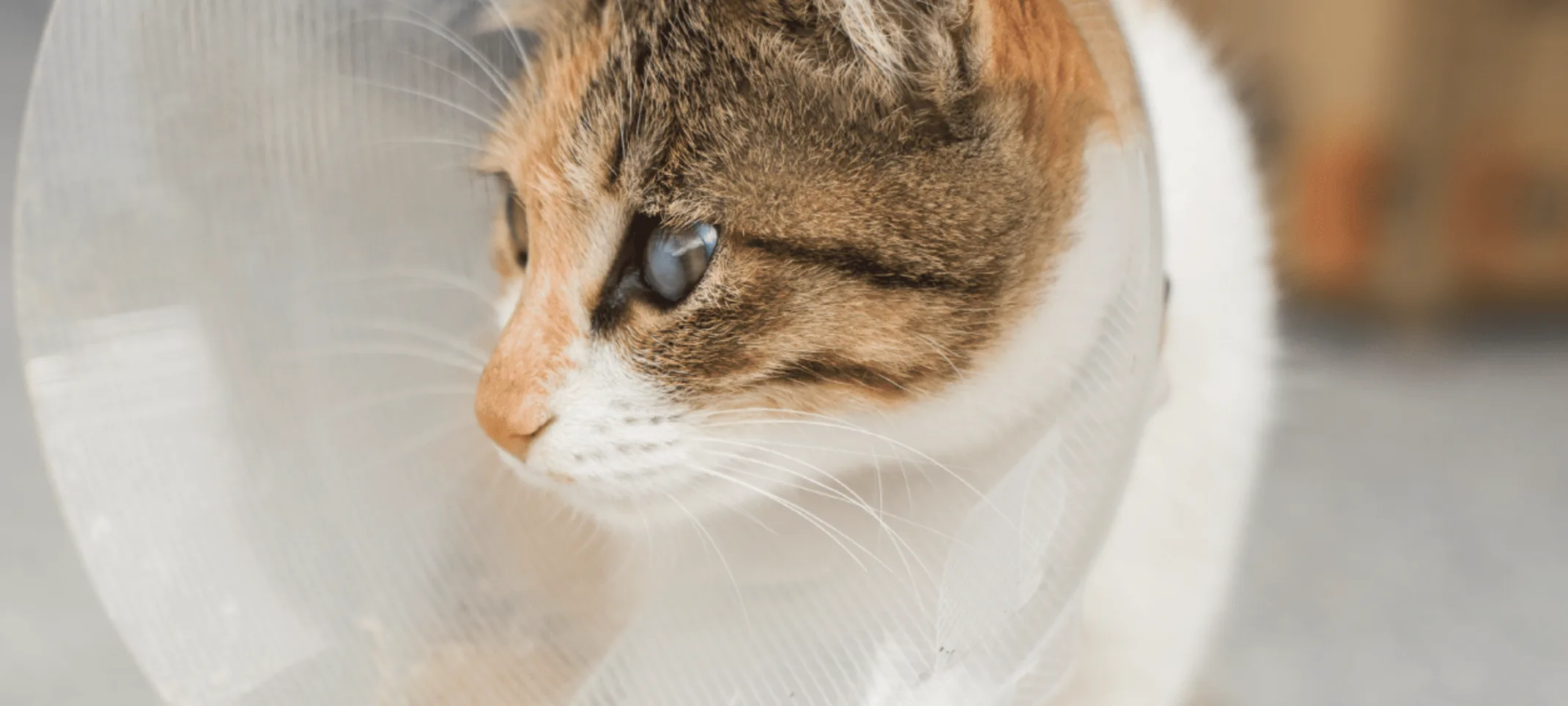Portage Park Animal Hospital
Spay & Neuter
Spaying or neutering your pet can help them live a longer, healthier life, minimize behavior problems, and help control the population of unwanted dogs and cats.

Overview
According to the American Veterinary Medical Association, nearly 12,500 puppies are born in the United States each hour. Spaying females or castrating males eliminates unwanted litters, which contribute to thousands of euthanasia procedures and millions of stray animals. Additionally, these procedures can minimize behavior problems and help your pet live a longer, healthier life by reducing the likelihood of certain cancers and tumors.
When should I have my pet spayed or neutered?
In general, we recommend spaying or castrating small dogs and cats between 4-6 months of age. With large breed dogs, we often recommend delaying the surgery until they are 6-12 months of age.
Why should I have my pet spayed or neutered?
There are many benefits that come with spaying your female companion animal. They include helping to control the stray dog and cat population, eliminating the sometimes 'messy' heat cycles that attract male dogs, and preventing diseases in your pet such as pyometra (infection in the uterus) and mammary cancer. Additionally, research has shown that spayed pets live longer than pets that have not been spayed.
There are also many benefits that come with castrating your male companion animal. These benefits include helping to control the stray dog and cat population, eliminating undesirable and embarrassing behavior, and preventing diseases in your pet such as prostate disease and testicular cancer.
How is a spay or neutering surgery performed?
Spaying, also called an "ovariohysterectomy," is a surgical procedure in which both ovaries and uterus are completely removed from your female pet while they are under general anesthesia. Castrating refers to the surgical procedure in which both testicles are removed while your male pet is under general anesthesia.
Before the operation, we will assess your pet to minimize risk. While your pet is under anesthesia we take individual care for the safety of each pet. Our certified technicians and doctors are trained in advanced monitoring to ensure your pet's comfort.
Your pet’s safety and comfort are our primary concerns when performing a spay or castration. We routinely use a IV catheter and fluids on canine spays and castrations, as well as feline spays. This is important for maintaining blood pressure and perfusion to the kidneys and other organs as well as allowing immediate IV access in the event of an emergency. We use advanced pain management techniques in conjunction with anesthesia to make sure your pet is as comfortable as possible during the procedure and after they are discharged. Our spay and castration patients receive 2 or 3 different injectable pain medications during the procedure and usually go home with oral pain medication. We also perform local anesthetic blocks at the surgical site. Proper pain management makes the procedure as comfortable as possible and allows for faster recovery.
What is the Recovery Process Like?
After the surgery has been performed, they’ll be monitored until they are fully awake. Your pet will be given pain medications to alleviate any discomfort before, during, and after the procedure. When you pick up your pet later that same day, they’ll be able to walk out to the car with you.We will guide you through the entire process, but here are some helpful tips to know about ahead of time:
Find your pet a place indoors that night for them to recover away from other animals
Do not allow your pet to lick the incision site – this may cause an infection
Prevent your pet from running and jumping for up to two weeks
Do not bathe your pet for 10-14 days after the procedure or until sutures are removed
Make sure to check the incision area regularly that it is healing properly
We will give you all the information you need to ensure your pet recovers back to full health. And, we are only a phone call away to answer any questions or concerns you may have during the recovery process.
Visit Portage Park Animal Hospital & Dental Clinic
Portage Park Animal Hospital is a full-service facility, providing everything from preventative care to all veterinary care services and surgeries. If you need to have your pet spayed or neutered, or just want to bring your pet in for a wellness check, we’d love to see you.
Call us at (773) 725-0260 for more information or to schedule an appointment.
